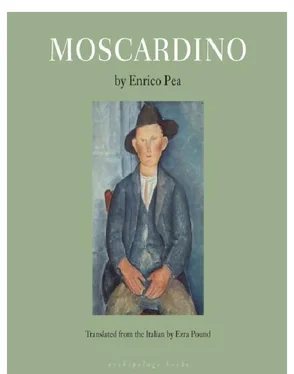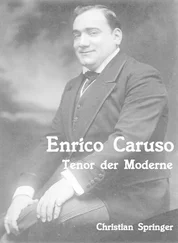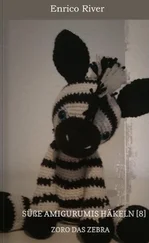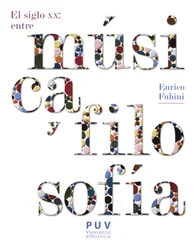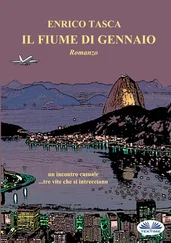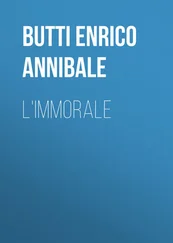The Signora Pellegrina showed no signs of grief at his passing. She said: Well out of it; you are.
Then she assembled her three sons and called Cleofe, the general servant who had come from the mountains, to act as witness:
You are all three grown men.
Your progenitors are no longer. Divide what is left.
The clothes I have on are my own. Don’t grumble if I wear silk.
After that she forgot to talk, as if turned mute.
My grandfather was the youngest of the Signora’s three sons. The middle one was named Lorenzo after the town’s patron saint and also because he had been born in the year that the doctor had been made High Chamberlain (or accountant) of the Church of San Lorenzo. He had been sickly from the start, didn’t walk till he was five, stuttered a little, and his remarks were so peculiar that people thought he was making up fairy tales. His father had intended him for the priesthood. That was another reason for calling him Lorenzo after the saint and the church with the marble steps and stone bench against its façade, and the chairs tilted against the outer wall from where one can watch the river with the winter sun beating down on poor men’s bent shoulders.
Be it said that these oldsters were lined up like culprits with a cane gripped between their knees, and that they mumble without moving their lips so that they shan’t make a draft or displace the air with their thin bodies. Noon stirs them and they carry off as much sun as has sunk into them, walking quickly because the shade of the acacias is full of pitfalls for age, and the acacias, lined up before the old folk’s home, throw a shade even in winter, and steal thereby that much sun from the aged.
I don’t remember the eldest brother’s name but he had a terror of blood, he was grumpy and ugly and watched himself perpetually in the mirror, terrified and bursting into tears at the slightest provocation.
Servants did not stay long. It was not an easy house for a servant.
The Doctor and Signora Pellegrina used to get up for mass at sunrise and for communion. The girl was expected to tell Mrs. Pellegrina not to swallow water while she was washing, she was expected to hand the doctor the grey shawl that he wore like a cape over his shoulders.
If the boys had committed a misdemeanor they were expected to confess after mass, especially if it had been of an embarrassing nature.
Grumpy had his coffee in bed. He stared up fixedly at the servant girl, from foot to head with his knees hunched up to his chest and his horse face unshaved. The girl approached him with a feeling of terror and loathing, and Grumpy continued to keep his hands under the covers as if there was nothing in front of him holding a cup. Which nothing finally said: Hurry up! Signor Padrone. Whereafter he would at leisure bring out a hairy paw like an ape’s.
The abbé wandered about the house all day long with his hands in the folds of his soutane. The servant was expected to say: Don Lorenzo, take your hands out of the slits. Then Don Lorenzo sniggered; went into the kitchen, lifted the lids of the pots with the ugly hands that had been in the slits of his soutane.
In the evenings when the abbé was in bed, the girl was expected to patch up the facings.
As my grandfather could not stand the click-clack of heels at certain times of the day the girl had to walk on tip-toe. He loathed seeing the abbé slinking about like a shadow. Every now and again he would rush at him, grab his long hair, pull out a few hairs from back-centre: O.K. that’s where you’ll be having your tonsure. He also picked on Grumpy, but less often.
He also slapped the servant. He was a devil when he got into a temper, upset the whole house, tore the bedspreads with his teeth, and if his terrorized family locked a door on him he would jump out a window.
The servants came, and left when they got their month’s wages.
Cleofe, the last of them all, came from the hills with her bundle on her head, and my grandfather opened the door for her.
Good morning, Sir. She said it with such charm that he was moved. Cleofe blushed.
My grandfather in his bedroom listened for the tap of her heels, it seemed like a leit-motif, life in that house’s monotony: click, tac!
Cleofe came from the hills by Terrinca, a place known for its beautiful women. They are long in the legs, with waists square as their shoulders. They are lean, with rather long faces, that seem perhaps a bit longer because they part their hair in the middle and coil it in two braids over their ears. They have very white skin, perhaps from the milk and flour diet. Their teeth are good, their lips full like those of young children, and their eyes are dark as the chestnut rind.
They carry baskets on their heads, old style, and take steps long as a man’s. Their cheeks dimple in smiling. Cleofe was of this breed. It seemed as if no cloud had ever passed over that clear face and no tear ever had clouded her eyes.
How could she sleep hearing someone on tip-toe in the corridor, breathing hard at the key-hole?
How could she have stood it long, in anxiety, her heart thumping and a lump in her throat?
Poor devil from the hills, she felt that no such high love was for her, she avoided it, tried to be hard, and felt anchored to the spot when he looked at her.
“I will go. I will go.” Another day passed and my grandfather’s face, imperious as a general’s, was there saying: Never. You can not.
My grandfather was in pain if she went into Grumpy’s bedroom or when the abbé kept his hands in his soutane slits in her presence.
Don Lorenzo take your hands out of your pockets. She blushed if my grandfather was there to hear her. He saw it and trembled.
“I will pluck you like a dead capon!” He would have killed him but for Cleofe’s intervention. She calmed him, patting his cheek.
Then my grandfather was taken with a mad passion and Cleofe could no longer meet his eyes without changing colour. Cleofe, do you like me?
Nothing was said for the rest of that night, in that house.
And yet everyone again heard the death rattle that they had heard a few days before when the doctor had got suddenly worse, and had almost sent for the confessor.
The rooms were full of ghostly population as that night when the dead man was no longer there but seemed to come through every opened door visibly, and a voice from purgatory seemed to move lamenting in the room.
And now the Signora Pellegrina hearing the creak of Cleofe’s door was terrified as she had been that night. And rattled her rosary and kept listening as if he had come back from purgatory and was asking relief for his soul.

Grumpy sat with his eyes popping out the whole night, with his knees bunched up to his chest, in a bloody vision. He saw the war of ’48 and the Austrian armies marching through the city, a high tide of fire, the forest moving, women disemboweled, children trodden into the mud by the horses with barbarian riders and the deafening noise of steel weapons.
Monstrous tale, my grandfather had told on his return.
He saw him in uniform, at eighteen, my grandfather who had planted the liberty tree in the town square, who had run away, who had gone venturing over the world, who had forded rivers, endured marches, killed enemies, plunging a bayonet into their kidneys.
My grandfather had upset an Austrian catafalque and slept in the dead man’s coffin.
My grandfather scared him, made him tremble, made the house shake; what would he do now to the servant, to his mother, to Grumpy himself, to the abbé?
The abbé perambulated up and down in the corridor. Stopped at Cleofe’s door, stayed fixed like a shadow with his hands in his pockets, with his head between the door and the door-frame.
Читать дальше
